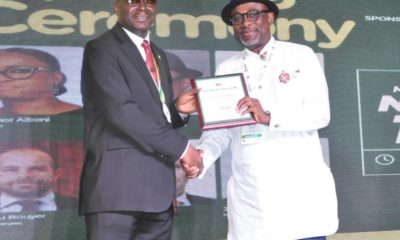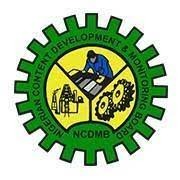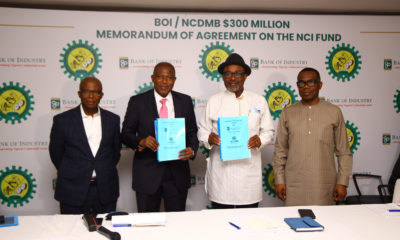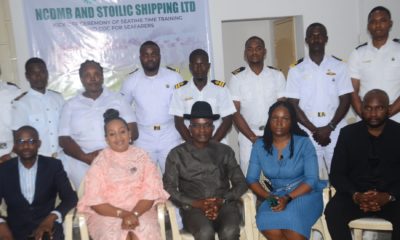Energy
NCDMB Proffers Guideposts For Sustainable Local Content Practice In Africa
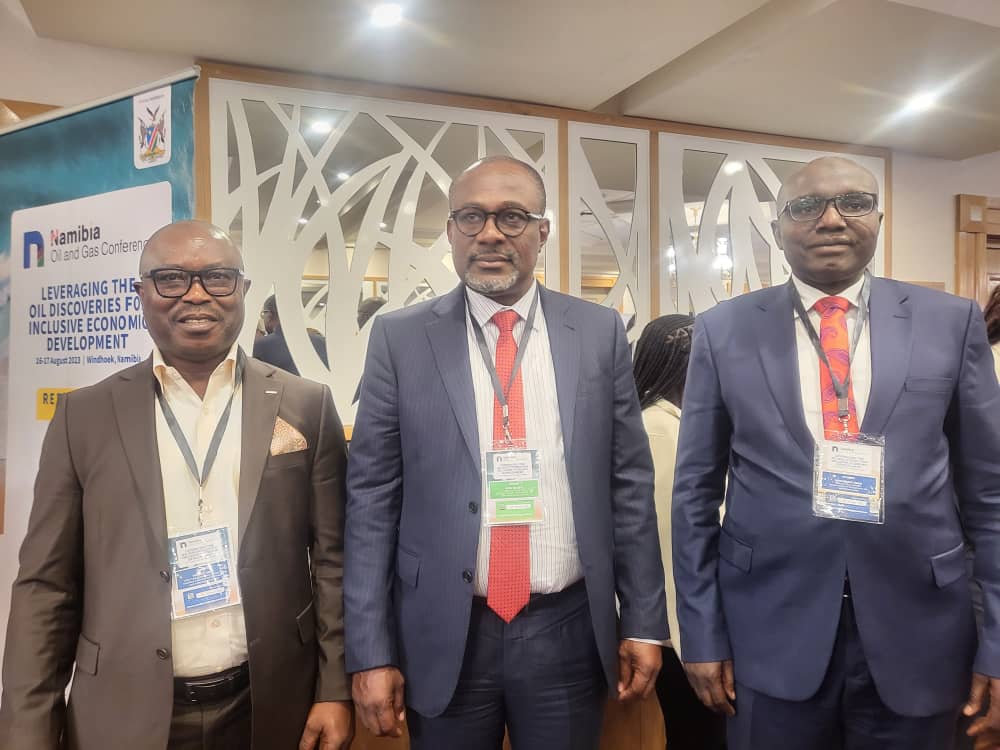
On the heels of remarkable discovery and exploration of oil and gas resources across several countries in Africa, the Nigerian Content Development and Monitoring Board (NCDMB) on Wednesday proffered strategies that would enable those nations to institute sustainable Local Content practices, achieve in-country value addition, and benefit maximally from the exploitation of their hydrocarbon resources.
The Executive Secretary NCDMB, Engr. Simbi Kesiye Wabote offered the suggestions at the two-day Namibia Oil and Gas Conference holding in Windhoek, Namibia. He hinted that Africa currently accounts for about 12% of annual global oil production, but only consumes less than 4% of the global production, describing the situation as potential opportunities in production, processing and utilization of oil and gas within the continent for improvement in the standard of living.
Speaking as the preeminent local content advocate in Africa, the NCDMB boss gave an overview of key parameters that are critical to in-country value addition and growth of the sector on a sustainable basis. These are Regulatory Framework, Gap Analysis, Capacity Building, Funding and Incentives, Research and Development, and Access to Market.
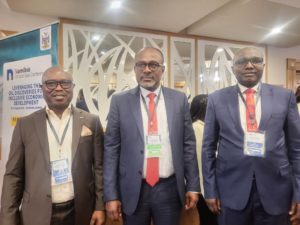
Director Corporate Services NCDMB, Mr. Patrick Obah; Executive Secretary NCDMB, Engr. Simbi Kesiye Wabote and Director Legal Services, Mr. Umar Babangida at the two-day Namibia Oil and Gas Conference held in Windhoek, Namibia.
Citing the example of the Nigerian Oil and Gas Industry Content Development (NOGICD) Act, 2010, he said: “An enabling regulatory framework backed with the appropriate legislation is very fundamental in local content practice,” and that it is “better than directives or policies that are subject to speculations or compliance on ‘best endeavour’ basis. According to him, once such a statute is in place “It is no longer optional or debatable whether to comply with local content requirements.”
Among lessons under the regulatory environment parameter he said, “The law must promote and enable investments rather than become a stumbling block to existing or new investors both locally and internationally,” and that “Provisions should be made in the law to address any lacuna without having to review the entire law such as the provision in the NOGICD Act for utilization of Ministerial Regulations to address any gaps or opportunities.”
Besides, he noted, a regulator “must be pragmatic in applying the law as the oil and gas industry is very dynamic such that aspirational goals and prevailing realities are not always on the same trajectory.”
On Gap Analysis, the NCDMB boss said, “Baseline and periodic gap analyses are essential to determine gaps that are needed to be closed in the areas of skills, facilities and infrastructure.” Lessons learnt so far in that regard show that “All gaps cannot be closed overnight even if you have the resources to do it,” and that it would be necessary to “prioritize areas of high impact and deploy prudent implementation measures.”
Structured capacity building intervention, according to him, “is essential to spur the development of in-country capacities and capabilities,” but implementation of major projects is a prerequisite. In his words, “Continuous and well sequenced stream of major projects is important to sustain utilization of established capacities and attract additional investments for growth.”
Funding and Incentives, he emphasized, are essential to implement local content programs, develop infrastructure, attract new investments, and keep existing businesses afloat where required.” He cited the Nigerian Content Development Fund (NCDF) provided for in the NOGICD Act, which has so far been deployed in the launch of the $350 million Nigerian Content Intervention Fund, the ongoing development of the Nigerian Oil and Gas Parks Scheme (NOGAPS), and construction of the 17-storey corporate headquarters of the Board.
On Research and Development, Engr. Wabote said, “Local content thrives where there are robust Research and Development guidelines to drive development of home-grown technology,” pointing out that in Nigeria there is “a $50 million Nigerian Content Research and Development Fund to drive basic research, commercialization of research breakthroughs, establishment of Centers of Excellence, and to sponsor university endowments.”
Access to Market, the Executive Secretary observed, is very essential, noting that “The policies or laws, the capacities developed, and the research and development efforts will become frustrating if there is no outlet to utilize them and receive reward for sustainability and growth. He equally pointed to “opportunities realizable from the African Continental Free Trade Agreement (AfCFTA).
The presentation of the NCDMB boss was rounded off with an appeal that Namibia do her best “to avoid Dutch Disease syndrome in which rapid development of your oil and gas industry leads to a decline in other sectors of the Namibian economy.”
He added that “this exciting era of oil and gas discoveries and their development should not lead to decline or abandonment of…mining, fishing, agriculture and tourism sectors of the economy.”
The Conference, organised by the Economic Association of Namibia (EAN), Namibia Investment Promotion and Development Board (NIPDB) and the Hanns Seidel Foundation (HSF) in strategic partnership with the National Petroleum Corporation of Namibia (NAMCOR) ended on Thursday.
Energy
Asharami Synergy Unveils Fuelling Solutions In Omagwa
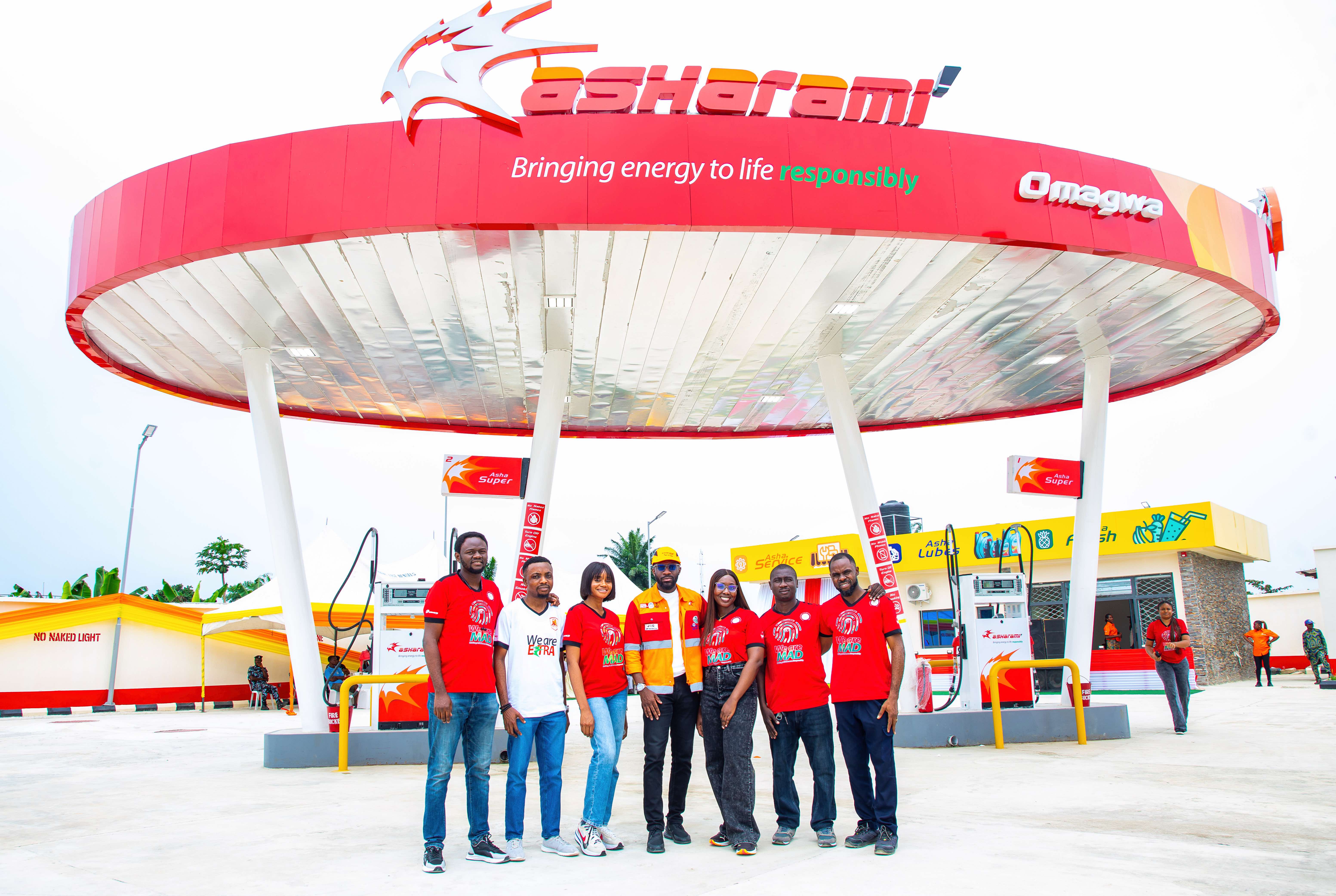
In line with its commitment to driving access to quality petroleum products, Asharami Synergy Limited, a leading Sahara Group downstream company, has said the public can now access exceptional fuelling solutions at its newly commissioned retail station in Omagwa, Rivers State.
Situated strategically along the Airport Road in Omagwa, the station, which features a storage capacity of 45,000 litres each for Automotive Gas Oil (AGO, also known as diesel) and Premium Motor Spirit (PMS, also known as petrol) is equipped with two pumps and four discharge nozzles for PMS and AGO.
The facility also has ample space for sundry services in a bid to ensure consumers get more “miles and smiles” as well as the energy to “go further” with Asharami’s world-class products.
“The Asharami Omagwa Retail Station is fully operational, offering a range of premium products and services. It’s a one-stop shop that also gives our esteemed customers eat-in and take-out restaurant services, shopping, as well as the Asha lubricants and Asha Service experience which will ensure premium care for all classes of automobiles and engines,” said Oladimeji Williams, Head, Government Relations and Business Development at Asharami Synergy.
ALSO READ: NNPCL Launches Utapate Crude Oil Blend, Eyes Production Expansion In 2025
At the Commissioning, Willaims said the new station represents an important step in Asharami Synergy’s expansion plan aimed at reaching and serving more communities responsibly. “This station is strategically positioned close to the airport, serving as the gateway for powering socio-economic development in the community and those close to it, while enabling Asharami Synergy integrate all aspects of its downstream business towards ensuring efficiency and value for our customers,” he stated.
Williams commended the Federal Airport Authority of Nigeria (FAAN) and the Omagwa community leaders for their support and collaboration throughout the project’s duration, describing it as a “seamless and productive process that highlights Asharami’s corporate stewardship and social impact” in the community.
Similarly, Ifesinachi Ezike, Regional General Manager (South South), FAAN, emphasized the broader significance of the new station, stating, “This occasion marks a significant milestone not just for Asharami Synergy but for the airport and the entire community. It marks not just an opening of a new facility but the beginning of a renewed commitment to enhancing the travel experience of all our passengers and stakeholders”.
In a move that underscores its commitment to sustainability and community development, Asharami Synergy also commissioned a solar-powered borehole during the launch. The borehole is set to improve access to clean and reliable water for residents, marking a tangible contribution to the local community.
“At Sahara, we are always making a difference—not just through our business operations; we are unwavering in our commitment to driving sustainable development and building partnerships that enhance the well-being of our host communities,” Williams added.
Energy
Awards Galore For Shell, Staff At NAPE 2024 Conference

The Shell companies in Nigeria and staff won awards in recognition of their robust participation at the 42nd Annual International Conference and Exhibition of the National Association of Petroleum Explorationists (NAPE), held in Lagos.
At the closing dinner of the event, the Managing Director of Shell Nigeria Exploration and Production Company (SNEPCo), Ronald Adams pledged sustained efforts by the company to address “the Nigerian energy trilemma by powering progress towards energy security in a sustainable manner”.
On the awards, the Shell was declared Best Overall Exhibitor and Best Exhibiting Energy company (International) just as Geophysicist Somime Oguntola took home the Award of Excellence for Oral Paper (second place).
The icing on the cake was a Shell staff, Johnbosco Uche, being installed as the new President of the NAPE.
It was gathered that the Shell companies in Nigeria have supported NAPE since its founding in 1975, using the skills and expertise of the large pool of energy professionals in its employment to improve its activities especially educational and mentoring programmes.
In addition to being a major sponsor of the 2024 conference, Shell mounted a high-profile exhibition, featuring among other things, career counselling, engagements on Nigerian Content and Contractor development and panel sessions on Women in Industry and Sustainability Energy Challenge.
A highlight was the Shell medical stand which attended to more than more than 500 conference participants and members of the public over the four days of the annual event. The doctors and nurses offered a wide range of services including laboratory tests, deworming, medical consultation as well as ophthalmology checks and distribution of nearly 300 eyeglasses.
Adams referred to the operations of SNEPCo as an example of Shell’s contribution to energy security in Nigeria. “As a result of sustained production from Bonga, we have provided funds to finance development, created a new generation of Nigerian Deepwater professionals, empowered indigenous contractors and service providers, and implemented social investments that have touched lives in the six geo-political zones of the country,” he said.
Adams added, “SNEPCo and indeed Shell are in Nigeria for the long haul. Our commitment is reflected in both our current and growth plans, all of which are grounded in principles of safety, affordability, and competitive performance.”
Energy
Accugas Denies Culpability In Akwa Ibom’s Power Outage

Owing to the persistent power outage, which has crippled economic and social life in most parts of Akwa Ibom State and environs, Accugas Limited has washed its hands off the ugly situation.
This was contained in a statement under the signature of its Communications Manager, Okwudili Onyia, in which the company traced the anomaly to a “fault in the 132-KV Aba-Itu transmission line”.
To ameliorate the situation, the company maintained that “It is imperative that the restoration of the Aba-Itu line is completed as soon as possible.”
In addition, the company pledged thus, “Accugas will continue to partner with, and support, the government of Akwa Ibom State towards achieving the government’s agenda for economic development and prosperity of the state.”
ALSO READ: NNPC Ltd To Supply 100mmscf/d Gas To Dangote Refinery
The statement reads, “Accugas Limited, a subsidiary of Savannah Energy, wishes to strongly deny the misinformation concerning its alleged involvement in the current power outage in Akwa Ibom State.
“The power cut in Akwa Ibom State is entirely due to the reported fault in the 132-KV Aba-Itu transmission line, which, unfortunately, is preventing power being transmitted from the National Grid into the State. It is imperative that the restoration of the Aba-Itu line is completed as soon as possible.
“Ibom Power Company (“IPC”) is one of 23 thermal power generation companies which channel power to the National Grid, which in turn disseminates all accumulated power to each State of the Federation through the electricity distribution companies (“Discos”). Indeed, Accugas supplies gas to enable c. 20% of Nigeria’s thermal generation capacity and, as such, is a critical enabler of the Nigerian economy.
“Within Akwa Ibom State, Accugas has been the sole supplier of gas to IPC since 2014 and, together with other Savannah subsidiaries, has invested over US$1.5 billion in gas development within the state. Furthermore, Savannah has recently invested c. US$45 million in a gas compression project at Accugas’ Uquo central processing facility at Esit Eket. Accugas’ commitments also extend to several social investment projects in the state. All the foregoing investments and projects, including other imminent investments Accugas intends to make in the State, demonstrate the Company’s long-term commitment to Akwa Ibom State and Nigeria.
“Accugas will continue to partner with, and support, the government of Akwa Ibom State towards achieving the government’s agenda for economic development and prosperity of the state.”

